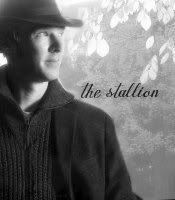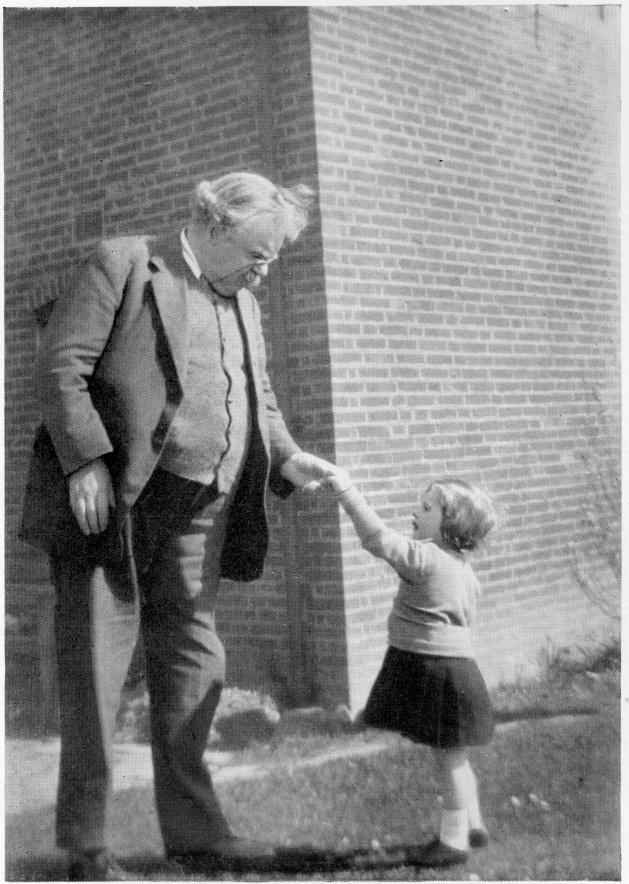Oh, look! A challenge that will make me write blogposts - and I've slept through the first day already! How convenient!
(Yes, this is like... Anna-steals-from-Jenny month. Or something.)
At any rate, the thing is for writers - it covers fifteen days - and the general idea, as far as I can tell, is to make writers write about bookish things.
 |
| Source for image and contest both may be found here. :) |
day the first - your favorite character you've written
 |
| Original photo of Benedict Cumberbatch belongs to the lad himself. |
I am still not sure how far the humility has taken him; I do not know where he properly belongs, the things he has sacrificed and the reasons he has for losing them. He is not my chummiest character; I have played with some that were far more sympathetic and agreeable. Unearthing his secrets is far from the point of this story, but I write it with the wistful half-hope that it may be one of its by-products. That's the thing about dappled things: like the sunshine smattering the floor of a forest, all his best traits are impossible to pin down - yet they are undeniably there, and their presence reminds us that someday we shall burst out from under the dark ceiling and find our faces fully bathed in the sunlight.
day the second: your favourite male author
...this question has a malicious ring of impossibility. Basically, everyone I read (with two or three exceptions) are men. Call me a literary tomboy (or a literary misogynist) if you will, I'm afraid it's mostly men: Lewis, Tolkien, Dickens, Collins, Lawhead, Blamires, Wodehouse... to say nothing of the Greek poets and Puritans and sundry theologians that make up the odd mixture of "what Anna likes to read." So I am only looking within the scope of authors who mix the roles of poet, philosopher, and just-plain-darn-good-story-teller. This basically leaves... Lewis, Blamires (less of the poet on that one), and the author I've selected, whom you should have recognized would be my favorite when I left him off the above list.
Gilbert Keith Chesterton.
 | ||
| Figuratively speaking, I'm the one on the right. Source: http://gkc.co.uk. |
It was a sound like Chesterton falling onto a sheet of tin. -P.G. Wodehouse, 'The World of Mr. Mulliner'
I was not, at that time, acquainted with the likes of Dorothy Sayers, and so had never experienced a mystery story that actually cut deeper than the brain. What I found in Chesterton bewildered me. It wasn't a mystery... not in the strict sense of the word. It wasn't the sort of thing that inspired you to try to figure it out as you went. Father Brown was a priest. His stories were simple, but far too complex in their characters for mysteries. (What's more, he tended to think meanly of Protestants and portray them very unflatteringly.)
At a time when Sherlock Holmes and Hercule Poirot came readily enough to hand, I shouldn't have fixated on the wanderings of this British priest. But there was a mystical, otherworldly quality to Father Brown's work - and all he seemed to be doing was taking an honest and thorough peep at humanity. It seized at my soul; probably because (though I did not realize it at the time) the characters themselves had souls, and (unlike the odd characters that inhabit most mystery stories, even the well-written ones) those souls mattered. I couldn't stop reading.
It baffled and perplexed me at the time, but I haven't been able to shake him ever since. I am not an expert on what makes good literature, and my rough idea of the definition of a 'classic' isn't really the point right now. My intention is to simply give a few selfishly personal reasons why I like Chesterton. (I have a blog. We've already established that I'm basically narcissistic by virtue of that fact. So are you. Get over it.)
Plainly put, Chesterton's style is gorgeous. His manner of description has a precision lacking in spareness, a rich quality that is free from overindulgence or verbal gluttony. He is a craftsmanship, his skill extending (to my reader's palate) beyond the reach of even the genius talents of Lewis and Tolkien. Don't get me wrong; I adore both of the latter, and find their writing styles quite enjoyable. But Chesterton is a master of description. He is never trying too hard; he merely sees for the reader, and what he sees is beautiful.
The winter afternoon was reddening toward evening, and already a ruby light was rolled over the bloomless beds, filling them, as it were, with the ghosts of the dead roses. (The Complete Father Brown)
Furthermore, Chesterton has a brilliant way of writing a story in layers: he never surrenders the position of masterful storytelling for the sake of making a point. My suspicion is that he simply wrote about people, and the grand statements of truth and beauty couldn't help slipping in. It is only fairly recently that we have begun to view all novels as belonging to the more tedious, cheaply-written class of mystery fiction - where the plot is made of a problem that needs a solution, and each character can be summed up in a simple, equation-like statement of what they need or don't need - and if there is a 'Christian' point, it can only be expressed in terms of an overdramatised conversion scene, or at least showing a nice Christian citizen in a favorable, reasonably intellectual light. If people are people, there will be complex profundities - no man is anything less.
"Do you understand that this is a tragedy?"
"Perfectly. Always be comic in a tragedy. What the deuce else can you do?"
(The Man Who Was Thursday)
Because Chesterton's characters are truly people, their stories are as much the stories of humans living in relation to each other and God as they are the stories of political and judicial conflict and resolution. This, I think, is why they are so compelling. Chesterton is the only author I know who can write a story that is totally driven by a love story between a man and a woman without cheapening the story by making the feelings between the man and the woman the point. The plot would not happen without the love story, but the love story is only a small fraction of the plot. I don't know how Chesterton accomplishes this, except by being realistic. They are much more than the stories of a man who likes a woman; they are two people living in right relation before the face of God - they are the simplest and the profoundest people on earth - and of course, somehow, in whatever they do, simple and profound things come bursting through their stories.
"That is it," she said, nodding rather strangely. "Through the worst one could imagine comes the best one could not imagine."
"I'm afraid I don't follow," said the Junior Partner.
"You go through the worst to the best, as you go through the west to the east," she said, "and there really is a place, at the back of the world, where the east and the west are one. Can't you feel there is something so frightfully and frantically good that it must seem bad?"
He stared at her blankly, and she went on as if thinking aloud.
"A blaze in the sky makes a blot on the eyesight. And after all," she added, almost in a whisper, "the sun was blotted out, because one man was too good to live."
(Four Faultless Felons)
That's really all there is to it: Chesterton is hilarious and profound, poetic and insanely straight-forward, full of simple complexities and heavy mirth, the reconciler of contradictions (or, rather, the exposer of false contradictions). It was he, the master of characters who are so bizarre that they can only be practically and absolutely human, who taught me to love the beauty of a paradox - the beauty of the human soul. If you have not delved into his stuffs, or you only dabbled with three-halves of separate chapters from Orthodoxy as part of a tedious British Literature textbook in high school - get thee hence and thence.
I have already enjoyed:
Orthodoxy
The Man Who Was Thursday
Manalive
Four Faultless Felons
The Complete Father Brown Mysteries
The Wild Knight (& Other Poems)
...and with a view of my bookshelf, I anticipate enjoying:
The Ball and The Cross
Tremendous Trifles
Napoleon of Notting Hill
The Flying Inn
The Everlasting Man
The Flying Inn
The Everlasting Man




Hooray for Chesterton! Especially Father Brown.... And for dappled things, too. Reminds me of Gerard Manley Hopkins. *happy sigh* :o)
First let me say I love your style of blog writting, it makes me smile.
day 1 - I find it so funny how when you write characters they can change so much, but in the end you know they turned out perfect.
day 2 - I haven't read any of Gilbert Chesterton's books, I'll to do that.
I'm so glad you've joined in. ☺
~Lèrowen
I was going to save this for the next paragraph of my letter, but I'm not sure...I'm not sure I can. Chesterton...how did he see? I don't know how to describe it. All the words jumble excitedly forward in my brain and cram in the doorway - and none of them manage to get out. He was like a man who never grew up, and yet he did. A child who understands how the world works. He is a dashed paradox! To him, everything holds magic as naturally as a wine bottle holds wine. I'm getting my tenses all messed up. I do that with writers. I can never decide if they are dead or not. But the point that I'm trying to make is that he can (or could, or whatever) see what lies back of reality, of the world, of the north wind, of everything. It's all in Plato! It's all in Plato... It could see it seeping through like cracks of light out of a clouded sky, pervading everything like a rainstorm in a desert.
I've only read one and half of his works, and that's how I feel.